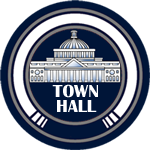|
Our athletes are students first. Paying them to play would undermine our academic mission.
WSJ Op-ed
April 12, 2024 at 1:47 pm
You could be forgiven for mistaking March Madness, college basketball’s celebrated tournament, for a professional sporting event. Yet the performance obscures two realities: First, not all college sports are the same. There is a wide disparity between Divisions I, II and III, and even within Division I itself. Second, athletics plays different roles at different institutions. At many, varsity athletics is a means to a well-rounded education, not the end itself.
That is Dartmouth’s model: We organize teams not to sell tickets but because athletics contribute to our students’ educational experience. Our men’s basketball team wishes to change that and, on March 5, voted to unionize. Dartmouth disagrees, and we’ll go all the way to the Supreme Court if that’s what it takes to prevent this misguided development from taking hold.
Our resistance to the decision isn’t because we oppose labor unions. Dartmouth has more than 1,500 union employees across five unions—including campus services employees, library workers, and teaching and research assistants—all of whom we are proud to work with through collective bargaining. Our goal, instead, is to preserve nonprofessional collegiate athletics in the Ivy League.
Many schools are built to optimize revenue in today’s billion-dollar college sports industry. For these schools, National Collegiate Athletic Association President Charlie Baker’s proposal that athletes receive direct payments for their contribution may make sense. Perhaps in these circumstances where college athletic programs are run, managed and monetized like a professional sports league, unions do too. But that isn’t Dartmouth, nor is it the Ivy League.
Dartmouth’s men’s basketball program doesn’t sell out arenas, make millions on television deals, pay its coach a fortune, or run a program that enables its players to cash in on major name, image and likeness endorsement deals facilitated by collectives and donors. That’s OK, because we aren’t trying to turn a profit with sports. Athletics are an important part of our students’ academic experience. Alongside courses in philosophy and neuroscience, our athletes learn about overcoming failure, developing as leaders and working toward common objectives.
Professionalizing our sports programs would fundamentally alter one of the tenets of our collegiate arrangement. The Ivy League was founded as an athletic conference on the principle that academics is the priority. Students don’t receive athletic scholarships; they are awarded financial aid based on need alone. We announced last month that starting next academic year, it will cost no more than $5,000 a year to attend Dartmouth for all qualified undergraduate students from families with typical assets less than $125,000.
Whether students choose to enhance their collegiate experience through varsity sports has no bearing on their financial aid, course of study or ability to pursue a successful career. If we moved to a professionalized model by which we give athletic scholarships or pay students for their time playing, our focus on their education and how we financially support those who need it would become subsumed by their role as employees.
Professionalizing our men’s basketball team would undermine Dartmouth’s academic mission of educating students to become influential leaders. Only a handful of our tens of thousands of graduates have gone on to become professional athletes. While we are proud of their achievements, our objective isn’t to become a pipeline to the National Basketball Association. Sports are a part of our educational experience because they help produce collaborative citizens and future leaders. Employing students for something that should complement their student life would distort their educational experience beyond recognition.
Such a change also ignores the lessons we’ve learned about the benefits of athletics in education and could potentially curtail athletic participation more broadly. I was a competitive soccer player growing up and brought my love of sports into my career as a cognitive scientist. My research on athletics’ effects on the brain has shown that sports can be a powerful complement to a rigorous classroom education, from teaching us how to practice to perform at our best to learning how to tune out distractions that would otherwise cause us to choke under pressure. Yet if our college were to turn toward a professional-athlete model, sports would become the outcome rather than an element of the educational experience. Participation likewise may fall, as sports become simply one job among many and the athlete-coach dynamic is displaced by a boss-employee paradigm.
When our men’s basketball team voted to unionize, we could have accepted the result. We could have begun the collective-bargaining process as Dartmouth has done in every other instance of unionization on campus. But a leader must always ask: Is there a principle worth defending, even if doing so is difficult or unpopular? To preserve the integrity of Ivy League athletics and for students who are also athletes everywhere, the answer is a resounding yes.
Ms. Beilock is president of Dartmouth College.
|
 Aren’t we hosting Harvard’s best player today on the hopes that an athletic -- WahooRQ 04/13/2024 09:30AM
Aren’t we hosting Harvard’s best player today on the hopes that an athletic -- WahooRQ 04/13/2024 09:30AM Though I’m not sure I understand all of the nuance, -- HoosWillWin 04/13/2024 11:37AM
Though I’m not sure I understand all of the nuance, -- HoosWillWin 04/13/2024 11:37AM The model that the bluebloods are heading to is one in which the players .. -- HowieT3 04/13/2024 2:14PM
The model that the bluebloods are heading to is one in which the players .. -- HowieT3 04/13/2024 2:14PM Just form semi-pro teams and be done with it ** -- Hoo TV 04/13/2024 3:03PM
Just form semi-pro teams and be done with it ** -- Hoo TV 04/13/2024 3:03PM








